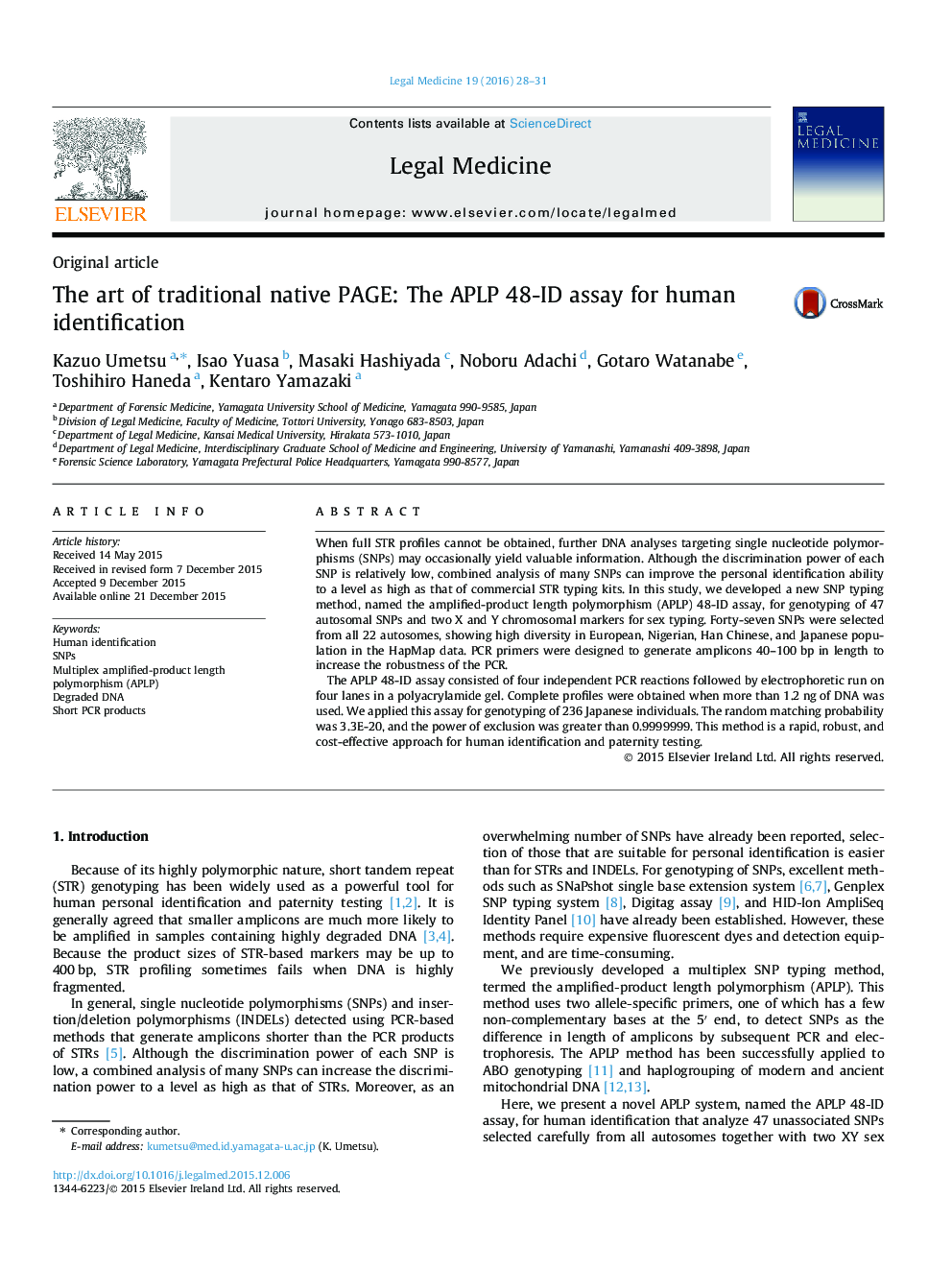| Article ID | Journal | Published Year | Pages | File Type |
|---|---|---|---|---|
| 103441 | Legal Medicine | 2016 | 4 Pages |
•The amplified-product length polymorphism 48-ID assay was developed and evaluated.•This method is a rapid, robust, and cost-effective approach for human identification.•This method is valuable for the analysis of the highly degraded DNA.
When full STR profiles cannot be obtained, further DNA analyses targeting single nucleotide polymorphisms (SNPs) may occasionally yield valuable information. Although the discrimination power of each SNP is relatively low, combined analysis of many SNPs can improve the personal identification ability to a level as high as that of commercial STR typing kits. In this study, we developed a new SNP typing method, named the amplified-product length polymorphism (APLP) 48-ID assay, for genotyping of 47 autosomal SNPs and two X and Y chromosomal markers for sex typing. Forty-seven SNPs were selected from all 22 autosomes, showing high diversity in European, Nigerian, Han Chinese, and Japanese population in the HapMap data. PCR primers were designed to generate amplicons 40–100 bp in length to increase the robustness of the PCR.The APLP 48-ID assay consisted of four independent PCR reactions followed by electrophoretic run on four lanes in a polyacrylamide gel. Complete profiles were obtained when more than 1.2 ng of DNA was used. We applied this assay for genotyping of 236 Japanese individuals. The random matching probability was 3.3E-20, and the power of exclusion was greater than 0.9999999. This method is a rapid, robust, and cost-effective approach for human identification and paternity testing.
Graphical abstractThe art of traditional native polyacrylamide gel electrophoresis.Figure optionsDownload full-size imageDownload high-quality image (284 K)Download as PowerPoint slide
